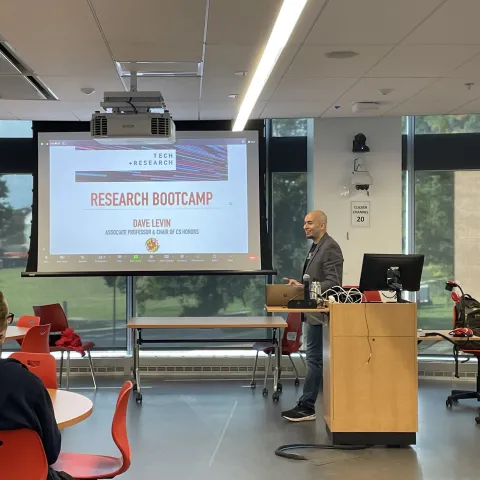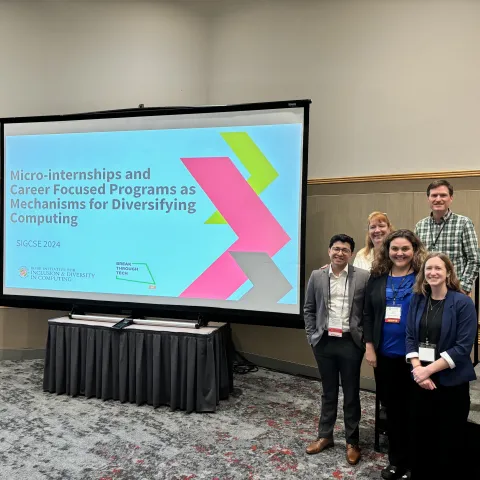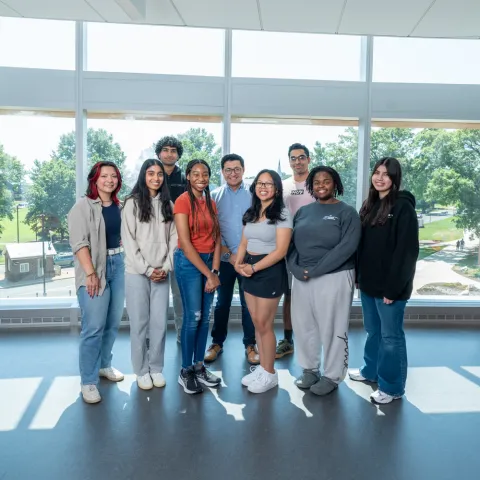Resources
Faculty and Staff Resources
The Iribe Initiative for Inclusion and Diversity in Computing (I4C) builds bridges between faculty, staff and students in all computing units, creating pathways for interdisciplinary careers, research and student support to diversify the tech sector. We are committed to connecting faculty and staff members with the resources they need to further our inclusive computing community.
Inclusive Teaching Resources
Computing & Diversity, Equity and Inclusion at UMD
- Department of Computer Science Diversity and Inclusion Committee
- College of Computer, Mathematical, and Natural Sciences Diversity & Inclusion
- Department of Geographical Sciences’ Diversity, Equity, Inclusion, and Anti-Racism (DEIAR) Committee
Get Involved With I4C
Student Organizations
The University of Maryland is home to more than 600 student organizations, including several at the intersection of tech and identity. The First Look Fair and our annual Tech Block Party in September are great opportunities to meet student organizations and see how you can get involved.



